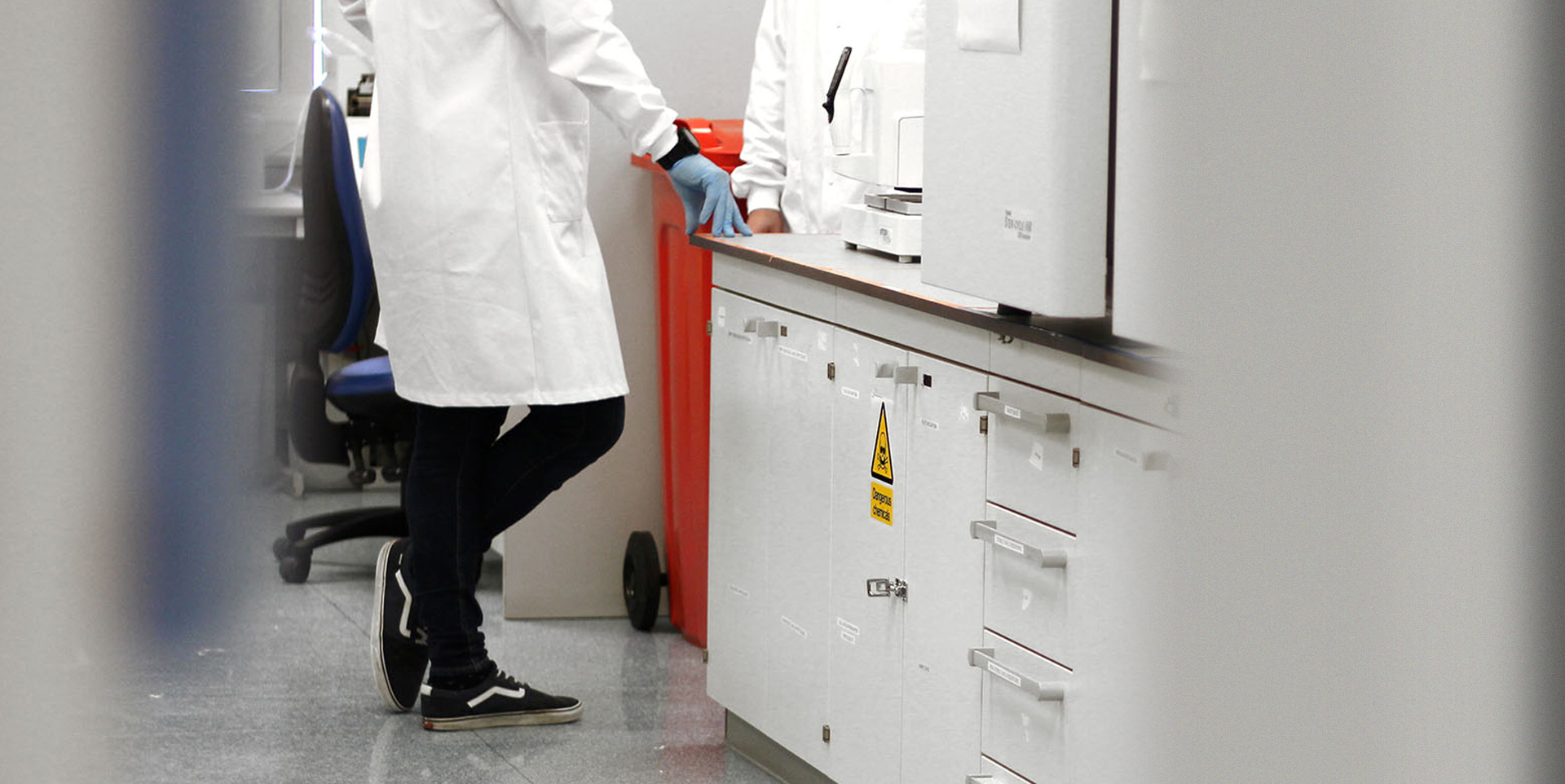Fear of failure is a feeling many entrepreneurs experiences and for some, it can even be a barrier to the success of their start-ups. Pioneer Group’s accelerator programme is designed to give budding entrepreneurs the tools they need to confidently pursue their business idea.
The programme has helped launch businesses like CuanTec, a Scottish blue-biotech company that produces raw materials for environmentally friendly food packaging. Their antimicrobial bioplastic prolongs the shelf life of food and is also compostable.

Cuantec make compostable, antimicrobial bioplastic from langoustine shells
During the programme, entrepreneurs learn key skills to help them reduce the
risk, time and costs involved in starting a business.
Director of Venture Development and the programme’s lead Colin Roberts, who is based at Pioneer Group’s Scottish campus, told us how they help entrepreneurs and why Scotland is an ideal place for life science start-ups.
“About 70% of those who join the accelerator programme come from an academic background. They have already developed the science or technology but are not sure about its commercial application.
“For example, we had an academic come to us with a clever technology to help make sample preparation using PCR (Polymerase chain reaction) faster and cheaper. They thought that their target market was academic labs in universities because that’s the world they came from.
“The programme helped them understand that university labs don’t have a lot of money and tend to purchase most of their equipment from about four or five main suppliers. They also learnt that speed wasn’t a big issue for university labs.”
“However, manufacturers of existing machines were interested in being able to sell cheaper and faster machines. The company used this information to change their focus and is now working on understanding how their technology could be integrated with existing manufacturers. This means they don’t have to raise the money to build the machines themselves, nor do they have to compete with well-established companies.”
As well as academics, the programme also attracts people from a clinical background who have observed a problem with current healthcare practice that they want to solve. Some also join the programme without a life science background because they see the healthcare market as an increasingly attractive one for start-ups.
Making your business model viable
The programme is split into three stages.
- Spark – An initial workshop which focuses on exploring the proposed business idea and introducing participants to tools and techniques to help them get started.
- Develop – A business acceleration programme which centres on evidence-based entrepreneurship and helps companies investigate and innovate potential business models.
- Launch – A bespoke programme that helps with getting investment and starting the business.
Organising the search for a scalable, repeatable and profitable business model is central to the process, as is the process of testing assumptions about the current model. It’s an area Colin has plenty of knowledge of, having joined a venture capital-backed medical imaging company Voxar Ltd in 2001, which was later acquired by Toshiba Medical Systems (now Canon). He has coached over 50 new healthcare start-ups through the programmes at Pioneer Group.
He said: “Many people come to us with a 10 to 15-page business plan document which is usually full of assumptions. We teach them to take a step back and test those assumptions by designing experiments and quickly gathering evidence to refine their thinking.”
The first thing to do when putting together a business model is to identify a desirable opportunity. To do this, fundamental and seemingly simple questions need to be answered such as “Who is your customer?” and “What is their problem?”
Understanding customers is pivotal when putting together a successful business model. This means going out and talking to real customers.
“We normally tell people to talk to 100 different customers during the Develop programme, which is a real challenge but one that always produces new insights and perspectives that help the teams move forward.
“One company we’ve had come through were developing a service for the computational modelling of drug discovery. They thought that their customer would come from big pharma but found that such companies already had the capability to do such modelling in house.
“On the other hand, SMEs wanted to have the capability but didn’t have the finances to do it in house. So now the company is focused on selling their service to these companies instead of those in big pharma,” Colin said.
To uncover such insights, participants are encouraged to observe customers in their natural environment and not to ask leading questions based on an existing solution, which can make people tell you what they think you want to hear.
When recently helping a company developing a new dental health product, the company found that they had initially asked customers questions such as how often they brushed their teeth and how often they went to the dentist. The programme taught them to ask more probing and open-ended questions, such as what problems they face looking after their teeth when living a busy professional lifestyle.
“We teach people how to elicit the right type of information.
“They learn to connect the problem to the solution by creating and validating a core value proposition for their product or service. The process of understanding product-market fit is critical to the success of a business as the number one reason for start-up failure is building a product that no one wants.”
“The process can be tough, for example, we might help a team discover that they only need one small part of the solution that they’ve developed. This can be difficult for some people who are very passionate about their work and have spent years working on it. Our role is to be objective about how commercially attractive the idea is and coach participants to have the same mindset and approach, which often produces remarkable results,” Colin said.




